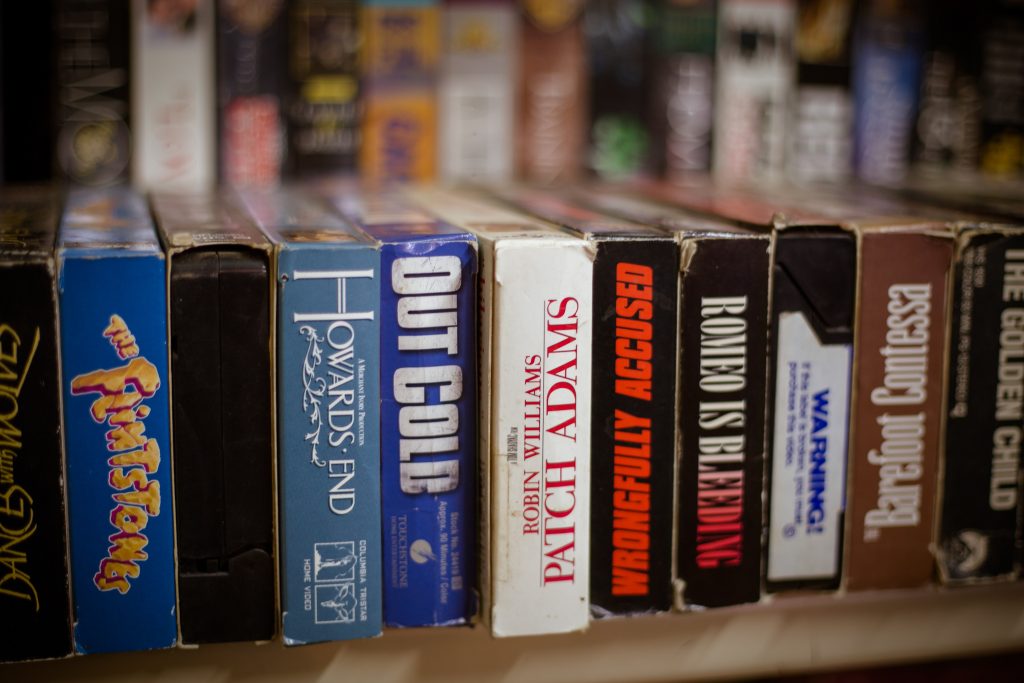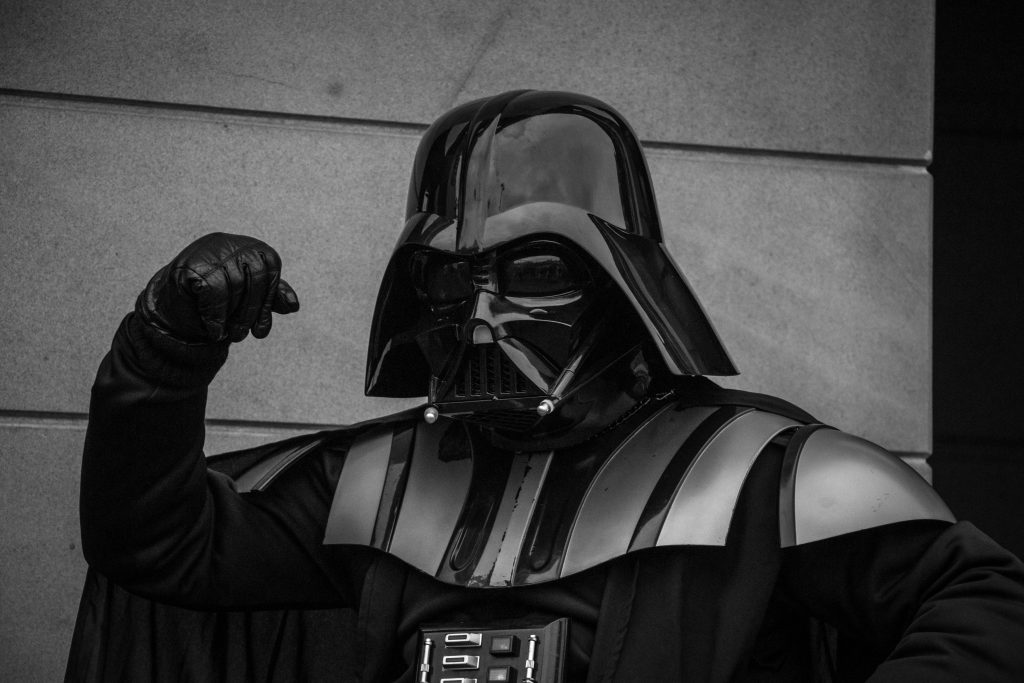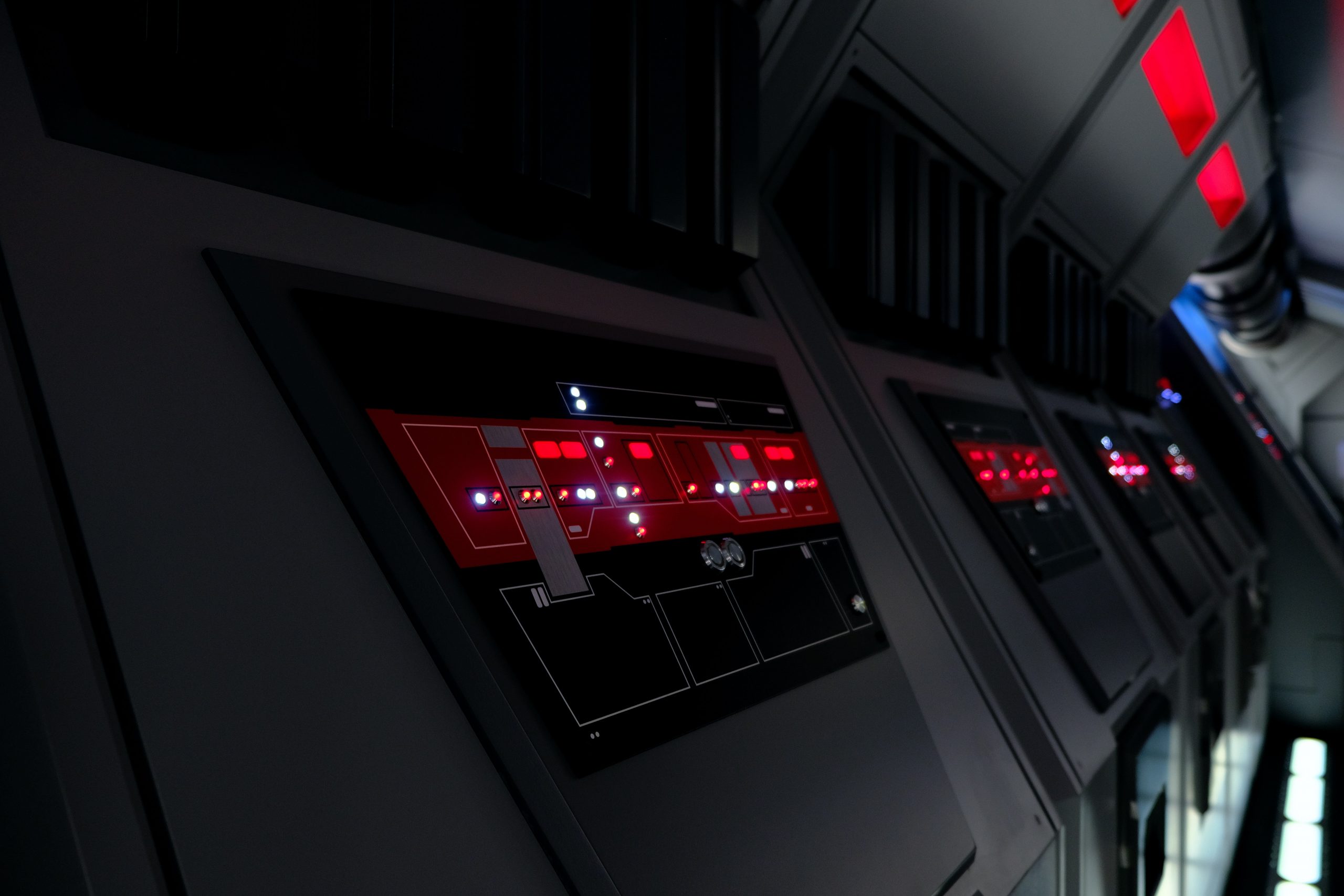Spoiler-Alert!
This article contains heavy spoilers for Star Wars Episode VI: Return of the Jedi and light spoilers for Episodes III: Revenge of the Sith and IV: A New Hope.
Believe it or not, I still own a VHS recorder. Yes, a proper player for video cassettes. I’ve been guarding it since I was a kid, because: Only on VHS can I still see the original trilogy of Star Wars as it should be. The attentive viewer may have noticed that there is a difference between the theatrical version (which can be seen on VHS) from 1983 and the DVD version from 2004.
If you were paying attention at the end of Episode VI: Return of the Jedi, you could see Anakin Skywalker’s Jedi spirit join those of Yoda and Obi-Wan Kenobi. In the original version, he was “embodied” by the then 78-year-old actor Sebastian Shaw, who had previously appeared in only one other scene: when Luke took off the helmet of his father – Darth Vader – so that he could see him for the first and last time with his own eyes, immediately before he died. In 2004, however, his mind suddenly looked very different. Suddenly, the much younger Hayden Christensen, who had recently become famous for this role in Episode II: Attack of the Clones, appeared as Anakin! But why?
Because I was not yet born when the film was shown in theaters, that video cassette was my first contact with the Star Wars universe, which has not let go of me since, despite some creative (mis)decisions. So I grew up with the evil Darth Vader, whose story was only hinted at by Obi-Wan Kenobi and who did everything he could to convert Luke to the dark side of the Force. I grew up with the same Darth Vader betraying his master afterwards to save his son, who somehow still believed that there had to be some good in his father. I found his strength admirable. It made me all the happier when, despite all the terror he had spread, he returned as a Jedi spirit with a silent promise that he would watch over Luke (and Leia). When I got to see the new version for the first time, I was a bit horrified. Why did this youngster suddenly appear who didn’t yet know about temptation, darkness and the inner strength to overcome it?

George Lucas cites two reasons for this decision, one of which is purely practical. He wanted to create a link between the original episodes, which had achieved cult status, and the new prequel trilogy. So, through Hayden Christensen, he wanted to visually integrate the new films into the already familiar franchise. Anakin Skywalker lent himself exceptionally well to this, because after all, Episodes I, II and III tell how he was able to go from being a Jedi to a Sith.
The other attempt to explain the story is more appropriate. Lucas states that Anakin Skywalker died – metaphorically speaking – when he defected to the dark side of the Force and became the feared Darth Vader. Anakin allowed himself to be seduced into evil by his eventual master, Palpatine/Darth Sidious, by giving in to his (negative) emotions. One could well find confirmation for this in Episode IV: A New Hope, as Obi-Wan explains to young Luke there that his father died fighting the dark side of the Force and the Empire. Only later, as we know, Luke finds out who exactly his father is. Then, when Darth Vader finally saved his son in Episode VI, and not just metaphorically died, he found his way back to the person he was before succumbing to darkness, so to speak. So the fact that the Jedi spirits of Yoda and Obi-Wan were not re-edited is also not a problem in this logic, since they were never corrupted by evil.

In a way, for Anakin’s appearance, it means that all the bad, the cruel and the traumatic never happened for him. No one who sees this Jedi Ghost could suspect that it was the infamous Darth Vader. For him (the Jedi), to all appearances, time stood still before all this happened. He bears no traces of age, no scars – at least not physically. What about his mental condition, we do not know. Can the young ghost even remember all this? Of how he slaughtered the Jedi on Coruscant? The younglings? How he fought his brother Obi-Wan after he recognized the darkness in him?
Possibly it may seem that all that suffering was never caused. It is a dream of every repentant to undo the deeds one regrets. But all this has happened, the consequences cannot be ignored: Padme is still dead, the Jedi all but gone, and the war has left its mark across the galaxy. It’s downright cynical that the Ghost is now portrayed as if Anakin didn’t witness and cause all of this.
The visibly aged Anakin is therefore a much more lasting statement for me – and an epitome of hope and inner strength. It’s easy to give in to temptation and emotion, to fall for the dark side of the Force. Yet he had everything he could want: a wife who loved him (but who he shouldn’t have married, but Obi-Wan didn’t condemn him for that) and who was pregnant, a friend and brother who always stood by him. And power. The desire for more power was ultimately his weak point. Still, he wrestled with himself, not wanting to become the villain of the story. But he couldn’t resist. He was not strong enough for it; for a long time he stood at the precipice, but in the end he jumped into it. How much strength must it have cost him then, after he had already penetrated the abyss of darkness, to return from there? To me, that’s the real heroic deed of Anakin: he not only saves Luke, but destroys the greatest enemy of peace, who also happened to be his master, who once saved his life when Obi-Wan defeated Anakin. I would say the moment he chose good again and gave his life for it, he became a Jedi again. And he wasn’t the same as he had been during Episode II, but stronger. Only Sebastian Shaw’s portrayal, in my eyes, dignifies this true Jedi Knight. Because in the end, Anakin Skywalker was the one who could end the Empire’s reign of terror, not Luke or Obi-Wan or the Rebellion. It became the most powerful Jedi who had already seen and done the worst things, yet found the light again to protect everyone. Time has left its mark on him and we should be allowed to see it, because it shows how much a person can grow. It should not be the goal to return to the original innocence, that is simply not possible. You can’t undo anything. But you can work to overcome your mistakes and stand up for what is right. And that is something to be proud of.

